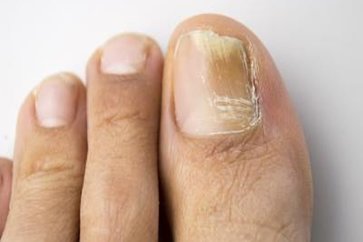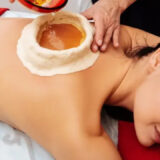Yoga and Meditation for Nightfall Control
1. Pranayama Techniques
Pranayama, the practice of breath control in yoga, can be highly effective in managing stress and balancing the doshas. Here are a few techniques to consider:
- Nadi Shodhana (Alternate Nostril Breathing): This technique helps balance the left and right hemispheres of the brain, calming the mind and reducing anxiety. It promotes relaxation and can support emotional stability.
- Ujjayi Breathing: Also known as “victorious breath,” this technique involves breathing deeply through the nose while slightly constricting the throat. It promotes a sense of calm and helps to center the mind.
- Bhramari (Bee Breath): This calming practice involves making a humming sound while exhaling. It helps reduce stress and tension, promoting a peaceful state of mind.
2. Specific Asanas for Reproductive Health
Certain yoga poses can enhance reproductive health and promote relaxation. Here are a few beneficial asanas:
- Baddha Konasana (Bound Angle Pose): This pose opens the hips and improves blood flow to the pelvic region, supporting reproductive health.
- Supta Baddha Konasana (Reclining Bound Angle Pose): A restorative version of Baddha Konasana, it promotes relaxation and reduces stress, which can help mitigate nightfall.
- Viparita Karani (Legs-Up-the-Wall Pose): This restorative pose encourages blood circulation and relaxation, helping to relieve stress and fatigue.
- Setu Bandhasana (Bridge Pose): This pose strengthens the pelvic area and stimulates the reproductive organs, promoting overall health.
3. Meditation to Reduce Anxiety
Incorporating meditation into your routine can significantly reduce anxiety and promote mental clarity. Here are a few practices to consider:
- Mindfulness Meditation: Focus on your breath and observe your thoughts without judgment. This practice helps cultivate awareness and can reduce anxiety levels.
- Guided Visualization: Use guided imagery to envision a peaceful place or a calming scenario. This technique can help create a sense of tranquility and reduce stress.
- Loving-Kindness Meditation (Metta): This practice involves silently repeating phrases of goodwill towards yourself and others. It fosters compassion and reduces negative emotions, contributing to a more relaxed state of mind.
Integrating yoga and meditation into your daily routine can help manage nightfall by reducing stress, promoting relaxation, and enhancing overall well-being.
Lifestyle Changes to Manage Nightfall Naturally
Establishing a consistent sleep routine is crucial for managing nightfall effectively. A regular sleep schedule helps regulate the body’s internal clock, promoting deeper and more restorative sleep. Here are some key practices:
- Set a Consistent Sleep Schedule: Go to bed and wake up at the same time every day, even on weekends. This helps regulate your circadian rhythm, improving sleep quality.
- Create a Relaxing Bedtime Ritual: Engage in calming activities before bed, such as reading, gentle stretching, or listening to soothing music. This prepares the mind and body for restful sleep.
- Limit Naps: While short naps can be refreshing, excessive daytime sleeping may interfere with nighttime sleep. If you need to nap, keep it to 20-30 minutes.
- Optimize Sleep Environment: Ensure your bedroom is dark, cool, and quiet. Consider using blackout curtains, earplugs, or a white noise machine to create a conducive sleep environment.
Avoiding Excessive Stimulation Before Bedtime
Minimizing stimulation in the hour leading up to bedtime can significantly enhance sleep quality and help manage nightfall. Here are some tips:
- Limit Screen Time: Reduce exposure to screens (phones, computers, TVs) at least an hour before bed. The blue light emitted by devices can interfere with melatonin production, making it harder to fall asleep.
- Avoid Heavy Meals: Refrain from eating heavy or spicy meals close to bedtime, as they can disrupt digestion and interfere with sleep.
- Steer Clear of Stimulants: Limit caffeine and nicotine intake, particularly in the afternoon and evening, as these substances can increase alertness and disrupt sleep patterns.
- Practice Relaxation Techniques: Engage in calming activities like meditation or deep breathing exercises before bed to help reduce stress and prepare for sleep.
Implementing these lifestyle changes can play a vital role in managing nightfall naturally. By prioritizing a proper sleep routine and minimizing excessive stimulation before bedtime, you can improve sleep quality, reduce stress, and enhance overall well-being.
FAQs
1. What is nightfall, and is it normal?
Nightfall, or nocturnal emission, is the involuntary release of semen during sleep, often accompanied by dreams. It is a normal physiological process, especially common in adolescents and young adults, and is considered a part of healthy sexual development.
2. What causes nightfall in Ayurveda?
In Ayurveda, nightfall is typically attributed to imbalances in the doshas, particularly an excess of Vata. Other contributing factors may include lifestyle choices, dietary habits, and mental health conditions such as stress and anxiety.
3. How can I balance my doshas to manage nightfall?
Balancing doshas involves a holistic approach that includes dietary changes, lifestyle modifications, and stress management techniques. Eating grounding foods, establishing a regular routine, and incorporating yoga and meditation can help restore balance.
4. What dietary changes should I make to prevent nightfall?
Include wholesome foods like whole grains, nuts, dairy, and ground vegetables. Avoid spicy, processed, and heavy foods, as well as caffeine and alcohol, which can aggravate Vata and disrupt sleep.
5. Are there specific herbs recommended for nightfall?
Yes, several Ayurvedic herbs can be beneficial, including Ashwagandha for stress relief, Shilajit for stamina, Kaunch Beej for reproductive health, Brahmi for mental clarity, and Safed Musli for vitality.
6. How does yoga help in managing nightfall?
Yoga helps by promoting relaxation, reducing stress, and improving blood circulation. Specific asanas and pranayama techniques can enhance reproductive health and balance the doshas, contributing to better sleep quality.
7. What lifestyle changes can support nightfall management?
Key changes include establishing a consistent sleep routine, creating a calming bedtime environment, reducing screen time before bed, and engaging in relaxation techniques to minimize stress.
8. When should I seek medical advice regarding nightfall?
If nightfall becomes excessively frequent, causes physical discomfort, or leads to significant emotional distress, it is advisable to consult a healthcare professional for further evaluation and guidance.
9. Can nightfall affect fertility?
While occasional nightfall is normal, frequent occurrences can lead to concerns about sperm quality and reproductive health. It’s important to maintain overall health and seek guidance if there are fertility issues.
10. What is masturbation?
Masturbation is the act of self-stimulating the genital organs, usually for sexual pleasure. It’s a natural and common activity for both men and women.
11. Is masturbation harmful?
In most cases, masturbation is considered a normal part of human sexuality. It can be a safe and healthy way to explore your body, release sexual tension, and relax. However, if done excessively to the point of interfering with daily life, relationships, or responsibilities, it may be a cause for concern.
12. Can masturbation affect physical health?
Masturbation, when done in moderation, does not cause physical harm. Some people may experience temporary physical effects, such as fatigue or soreness, if done excessively. However, it’s unlikely to cause long-term physical damage.
13. Does masturbation have any psychological effects?
Masturbation can have psychological effects, both positive and negative. It can help relieve stress and promote relaxation. However, if it becomes compulsive or if feelings of guilt or shame are attached to the act, it may negatively affect mental health.
14. Can masturbation cause infertility?
No, masturbation does not cause infertility. It does not affect sperm count or reproductive health when done in moderation. In fact, it can even help improve sperm quality by clearing out older sperm.
Note: In most cases, nightfall is a normal part of development. However, if other symptoms accompany it or significantly impact the quality of life, exploring potential underlying health issues with a healthcare provider may be beneficial.
Managing nightfall through Ayurvedic practices involves a holistic approach that encompasses dietary adjustments, lifestyle changes, and the use of herbal remedies. By focusing on balancing the doshas, yoga and meditation, individuals can reduce the occurrence of nightfall.
Resources:
- Vajikarana: Treatment of sexual dysfunctions based on Indian concepts(1)
- Ayurvedic management of Klaibya – Case Study(2)



























There are many reasons responsible for it such as If you excess masturbate then end this practice immediately and other factors such as stopping smoking or other unhealthy habits immediately. Make sure you have a healthy diet, because most of the sexual disorders are due to the lack of notorious food.
I am 20years old male i use to have2-3 times wet dreams a week it strat after i did mustarbition from 2013 till now.Plz can you suggest me best medicine to cure my problem which really really disturbing of future my is ruining with this. So plz help me
Stop Masturbation . I won’t say that, I would say stop being occupied with sexual thoughts and practices. There can be many reasons for Wet Dreams. I had experienced in my life that it can be due to above reasons given in website but other than that there can be psychological, external, environmental reasons. I don’t think to cure this you need medicine but maybe you can only keep your mind and thoughts calm. Think like there doesnt even exist masturbation and automatically you will get unaware or sex and related malpractices. Let me warn you its not east at first time to control your masturbation practices. Have Patience in the process and instead of totally abstaining reduce the frequency. Like once in 2 months.
LoL. Sometimes I don’t believe Ayurveda. I recently had a wet dream and the timing was very vague. What I mean is , I woke up in early morning to go toilet and was fine and fell asleep again. After that I had a very uneasy dream and not even dream of sex or masturbation but felt like urinating and thus emission occurred. Now, I also want to mention I had saltless and spiceless food the day before. I had a fast the day before and only ate Bananas, Milk, Potato’s Sweet Halwa, very few peanuts, and Suji ka Halwa with Rotis(Pronthis). So, there is totally no consumption of any spicy and even salty food the day before. The age’s 21.
The focus on dietary adjustments and herbal remedies provides a holistic perspective that many readers will find beneficial. It’s great to see practical tips for lifestyle changes that can support overall health and well-being.